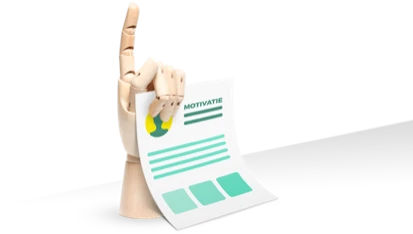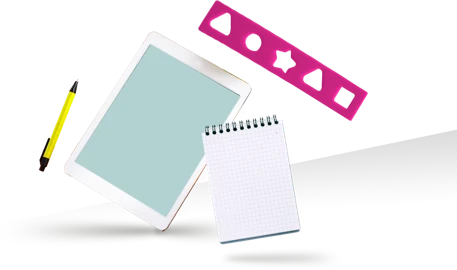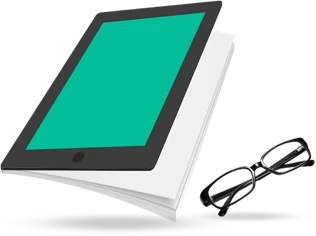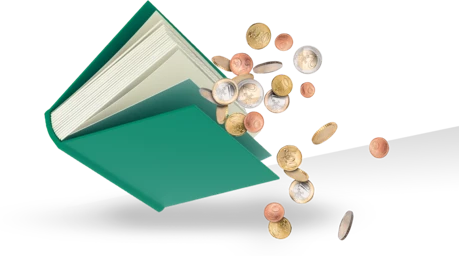Wo master - Taal en Communicatie
Letterkunde
Varianten: Writing, Editing and Mediating, English Literature and Culture

Over de opleiding Open dag: 13 maart

Are you interested in the study of literature? Investigate our tracks to see the courses we offer.
The one-year Master's degree in Literary Studies offers two tracks: European Literatures and Interculturality, English Literature and Culture and Writing, Editing and Mediating.
The track in English Literature and Culture explores English literary classics and new works of English literature in their cultural context. As a student of this programme, you can draw from the full historical and geographical sweep of literatures in the English language.
In the Writing, Editing and Mediating track you focus on all aspects of writing, editing and publishing. You will improve your English writing and editing skills. In addition, you will learn to help others in their writing process. The track is meant for graduates with a near-native command of the English language.
Read more about the discipline of English Language and Culture.
Keuzes binnen de opleiding
-
What makes a text captivating? How do you recognize repetitions, inconsistencies, faulty logic and other problems with writing? What does it take to guide a text from writer to reader?
Groningen is the only university in the Netherlands to offer an MA programme that focuses on answering these questions, providing insights into the history of publishing and textual dissemination alongside practical skills in textual editing and writing. The Writing, Editing and Mediating Master's track investigates the functions of literary works in their social contexts, the formations of editions, the theoretical underpinnings and history of writing, translating and mediating texts and the ways in which texts were disseminated to particular social groups.
Our MA is the only programme in the Netherlands to feature creative writing modules that allow students to hone their skills in crafting poetry and short stories. Throughout the course of the programme, students have the opportunity to tailor their study to their specific interests and needs undertaking modules taught by lecturers at the top of their fields. This programme provides a personal approach, prioritizing working in small classes in close contact with staff.
The programme also features the option to do an internship, giving our students the opportunity to create a network and gain hands-on experience working in industry.
Kennismaken met deze variant?
-
How do literature and culture create identity? What effect does literature and telling stories have on modern society? How can literary studies shape the future?
The academic study of English literature can be used to reflect on the ways that people interact with one another, providing a catalyst for insight into contemporary social debates. While acquiring key skills in analysis, interpretation, critical thinking, research and independence, you will have the opportunity to study the rich literatures and cultures of the British Isles and North America, as well as other countries where English is used.
Our MA is the only programme in the Netherlands to feature creative writing modules that allow students to hone their skills in crafting poetry and short stories. Throughout the course of the MA, students have the opportunity to tailor their study to their specific interests, from medieval classics to the Victorian novel to fan fiction, undertaking modules taught by lecturers at the top of their fields. This programme provides a personal approach, prioritizing working in small classes in close contact with staff.
The programme also features the option to do an internship, giving our students the opportunity to create a network and gain hands-on experience working in industry. Our students often go into writing and publishing, and publishers recognize our programme as an
Kennismaken met deze variant?
Op Studiekeuze123 kun je informatie vergelijken. Op de website van de onderwijsinstelling kun je verder lezen als de opleiding je aanspreekt.
Bekijk instellingswebsiteBekostiging: Overheid
Toelating & selectie € 2.694 wettelijk collegegeld in 2026 / 2027

Om toegelaten te worden tot een opleiding moet je aan bepaalde eisen voldoen.

Toelatingseisen
Om aan een master te kunnen starten, heb je een bachelordiploma nodig.
Sluit je bachelor niet direct aan op de master, of stroom je door van hbo naar wo? Dan moet je meestal een schakelprogramma of premaster volgen. Lees meer over schakelprogramma’s (Schakelprogramma, is dat nodig? - Studiekeuze123)
Collegegelden
Wettelijk collegegeld
Wettelijk collegegeld
Wettelijk of instellingscollegegeld?
Heb je recht op het wettelijk collegegeld of betaal je het instellingscollegegeld? Gebruik onze Collegegeldwijzer
Hoe hoog is het instellingscollegegeld? Bekijk het op de website van de universiteit
Meer weten?
Belangrijke data

Mis geen belangrijke gebeurtenissen. Check belangrijke data ook bij de opleiding zelf.

-
13
maart 2026
Open dag / avond
Meer open dagen -
15
augustus 2026
Aanmelddeadline opleiding -
1
september 2026
Start opleiding
Alle startmomenten
Tijdens de opleiding 47 eerstejaars

Geen enkele opleiding is hetzelfde. Kijk daarom naar de kenmerken van een opleiding.

Studeren bij deze instelling
Studieadvies
We hebben onvoldoende betrouwbare informatie over dit onderwerp.
Studieverloop
Diploma binnen 2 jaar
Meer weten?
Tevredenheid 4.4/5.0 algemene tevredenheid

Hoe beoordelen de (oud)studenten deze opleiding?

Nationale Studenten Enquête
Hoe tevreden waren studenten in 2025 over aspecten van deze opleiding?
|
Deze opleiding
Rijksuniversiteit Groningen |
Landelijk gemiddelde
Letterkunde Vergelijk alle 6 opleidingen |
verschil | |
|---|---|---|---|
|
Studenttevredenheid
Meer informatie | 4.4 / 5 | 3.9 / 5 | |
| Sfeer | 4.8 / 5 | 4.4 / 5 | |
| Studiefaciliteiten | 4.6 / 5 | 4.1 / 5 | |
| Studie opnieuw kiezen | 4.5 / 5 | 3.9 / 5 | |
| Inhoud en opzet | 4.3 / 5 | 3.9 / 5 | |
| Aansluiting beroepspraktijk | 3.8 / 5 | 3.3 / 5 | |
|
Studenttevredenheid
Meer informatie | 4.4 / 5 | 3.9 / 5 | |
| Sfeer | 4.8 / 5 | 4.4 / 5 | |
| Studiefaciliteiten | 4.6 / 5 | 4.1 / 5 | |
| Studie opnieuw kiezen | 4.5 / 5 | 3.9 / 5 | |
| Inhoud en opzet | 4.3 / 5 | 3.9 / 5 | |
| Aansluiting beroepspraktijk | 3.8 / 5 | 3.3 / 5 | |
| Docenten | 4.4 / 5 | 4.2 / 5 | |
| Lesstof in het Engels | 5.0 / 5 | 4.7 / 5 | |
| Studiebegeleiding | - / 5 | 4.0 / 5 | - |
| Toetsing en beoordeling | 4.4 / 5 | 4.0 / 5 | |
| Betrokkenheid en contact | 4.4 / 5 | 4.2 / 5 | |
| Studiedruk |
Oordeel afgestudeerden
Over de studie Letterkunde
Studeren met een ondersteuningsbehoefte
Veel studenten hebben tijdens hun studie behoefte aan extra voorzieningen of flexibiliteit in het onderwijs. Dit kan komen door een aandoening zoals dyslexie, een chronische ziekte, psychische klachten, maar ook topsport of ondernemerschap tijdens de studie. Studenten beoordeelden hoe tevreden ze zijn over de ondersteuningsmogelijkheden bij hun onderwijsinstelling.
Na afstuderen 24% van de werkenden vond een baan op niveau

Lees hoe het studenten van deze opleiding in de eerste periode na hun studie vergaat op de arbeidsmarkt.

Meest gekozen beroepen (na deze studie)
| Journalisten | 16% |
Werkgelegenheid na deze studie
Bij deze studie zijn de verwachtingen voor het vinden van een baan goed.
Een (substantiële) baan vinden...
duurt gemiddeld 18 maanden.17% krijgt een vast contract.
Match tussen studie en beroep
44% vond een baan binnen het vakgebied van de studie
24% vond een baan op het niveau van de studie
Startsalaris
Het startsalaris na deze studie is lager dan het gemiddelde van alle wo master studies.
€ 2.509
Geschatte startsalaris na deze studie
€ 3.150
Geschat van alle wo master studies
Gemiddelde werkweek
Hoeveel uur afgestudeerden gemiddeld werken bij hun huidige baan.
34 uur
Het percentage zelfstandigen
We hebben onvoldoende betrouwbare informatie over dit onderwerp.
Contact Contact 050-3638100

Meer weten over de opleiding? Neem contact op met Rijksuniversiteit Groningen


Meer informatie
Bezoek ook de website van Rijksuniversiteit Groningen
Bezoek website van Rijksuniversiteit Groningen


